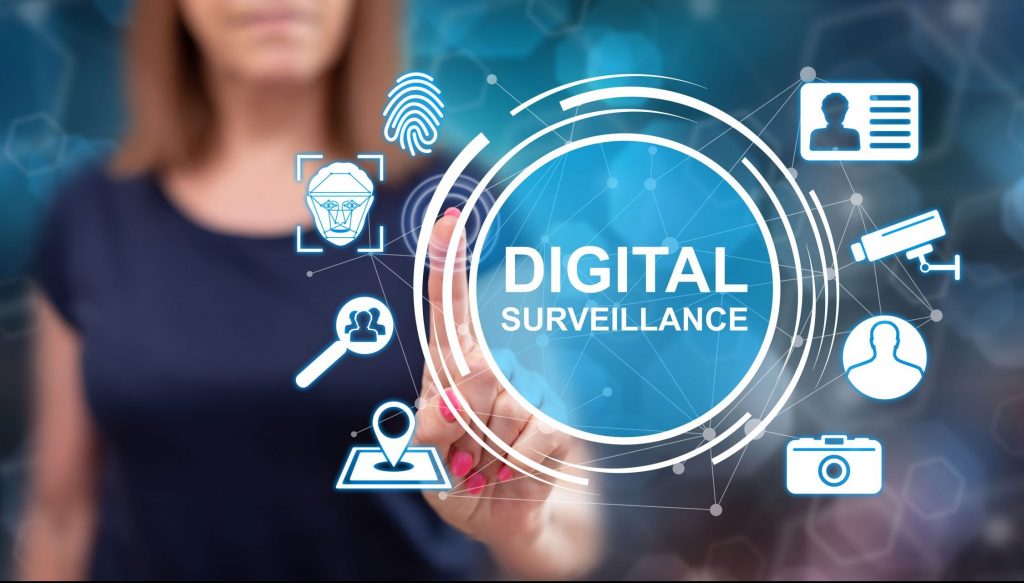
Facial recognition is one of the most widespread forms of government surveillance, and the U.S. is finally starting to consider limits. (Source: Adobe Stock)
Some World Governments Refuse to Ban Invasive Tech, U.S. Leaders Mull over Restrictions
Did you know in Beijing, some street corners have dozens of cameras to track citizens? Even Moscow has facial recognition payment systems at metro stations. London police use that software to “tackle serious crime.”
For most of the world, it’s clear: Facial recognition technology is here, it’s being used and it doesn’t matter that some nations – including our very own – scoff at the tech as an invasion of privacy.
Perhaps more surprising is that some of that scoffing might be a little rich, if not downright hypocritical. A trove of documents obtained by The Washington Post uncovered government efforts to spy on citizens. And it turns out they’ve been doing it for years. Can you say you are surprised?
This week we found alarm bells ringing across the internet. Gizmodo.com and politico.com both have stories concerning the Democratic party’s attempt to pass legislation that combats this type of technology being used on American citizens.
If passed, the Facial Recognition and Biometric Technology Moratorium Act would cut the feds off from a variety of other sensitive biometrics identifiers, like voice and gait recognition, and limit federal grant funding only to states with their own “substantially similar” facial recognition or biometric moratoriums.
“The year is 2023, but we are living through 1984,” Massachusetts Dem Sen. Ed Markey, the bill’s lead author, said in a statement. “The continued proliferation of surveillance tools like facial recognition technologies in our society is deeply disturbing. Biometric data collection poses serious risks of privacy invasion and discrimination, and Americans know they should not have to forgo personal privacy for safety.”
Social Behavior and Finances
We all have heard horror stories about the Chinese government’s overreach and oversight. The rumor is if you are caught by a camera doing something as simple as JAY-WALKING, you can be ticketed digitally. If your bad digital totals reach a certain level you are limited to what you are allowed to buy. Going to a store for an item could be forbidden until the government decides you have corrected your behavior. Can you think of anything that is more 1984 than that? However, China is finally putting privacy laws in place. It’s hard to believe, but the country is ahead of the U.S. right now on this issue.
Federal actions on facial action may be lacking but local city-level actions are alive and well. To date, at least 16 municipalities, including San Francisco, Boston, and Oakland already passed laws and ordinances on facial recognition use by law enforcement or in public. At the same time, rising violent crime rates in recent years have reportedly pressured leaders in at least some of those areas to reconsider their facial recognition prohibitions.
Recent polling suggests people are still split on facial recognition generally, making the issues potentially more fluid than others.
Around 46% of U.S adult surveys by Pew last year said they thought widespread police use of facial recognition seemed like a “good idea.” Another majority (66%) however said they thought police would use their tech to monitor black and Hispanic neighborhoods at higher rates. 53% said the tech’s widespread use would probably lead to more false arrests.
“The government is opening Pandora’s box on a terrifying technical capability, which can enable pervasive tracking of anyone or everyone in a way never before possible in a free society,” ACLU Speech, Privacy, and Technology Project Deputy Director Nathan Freed Wessler told Gizmodo. “Lawmakers need to close the door on government abuse of this technology now, before it is too late.”
With the amount of racial discrimination already programmed in some algorithms, we certainly don’t want or need even further digital overlords making life even more difficult.
read more at gizmodo.com







Leave A Comment